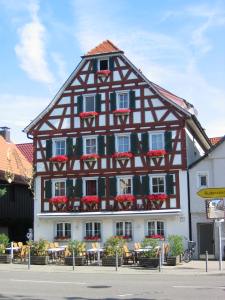Bavaria is a federal state in Germany, but the people living there consider themselves Bavarian first and German second. For most people, the word “Bavarian” conjures images of delicious desserts, foamy beer in huge steins, and iconic architecture. For a taste of this unique culture without leaving the U.S., many people look to German hotels.
Castles
German hotels often resemble dreamy castles that evoke the feeling of opulence to their guests. Castles, such as the ones built mad King Ludwig II, known as the fairy tale king because of his extravagant castles, offer a glimpse into the country’s past and are an important part of the Bavarian culture, drawing visitors from everywhere in the world. Some of the most recognizable castles and palaces in the world are located in Bavaria.
Traditional Clothes
Another iconic image of Bavarian culture is the oft-imitated traditional dress, specifically the lederhosen and dirndl. Many German hotels and other German-themed businesses and celebrations dress workers in these traditional rural outfits. The lederhosen are shorts or pants made out of leather and elegantly decorated with embroidery on the bib section and suspenders. The longer ones, below the knee, are called bundhosen.
Women wear the traditional dirndl for festivities. The dirndl is based on dresses traditionally worn by peasants living in the Alps. These colorful full skirt dresses and aprons adorned with embroidered flowers are usually worn with a ruffled white blouse is and a buttoned or tied bodice.
Celebrations and Traditions
The Bavarian culture is one of many celebrations from the Aperschnalzen whip-cracking competition to to the globally well-known Oktoberfest. Perhaps the most famous of the Bavarian celebrations is Oktoberfest, a weeks long folk festival held in Munich since 1810. Millions of tourists from around the world flock to the Theresienwiese fairgrounds, known locally as Wies’n, to partake in the food and beer. The first Oktoberfest was a celebration of the marriage of Crown Prince Ludwig (to become King Ludwig I) and Princess Therese on October 12, 1810. Today, Oktoberfest celebrations can be found all over the world, often hosted by German hotels or restaurants.
A lesser known but popular celebratory event taking place in winter (usually every 3rd February) is the Aperschnalzen whip-cracking competition. The Aperschnalzen (from the word aper, which means free of snow), is an old tradition that was resurrected in the 20th Century in which teams of men rhythmically snap and crack a whip, known as a goassl, to drive the winter away.
References;
http://www.guide-to-bavaria.com/en/Bavaria-Culture.html
http://www.bavaria.by/tradition-custom-bavaria-germany











